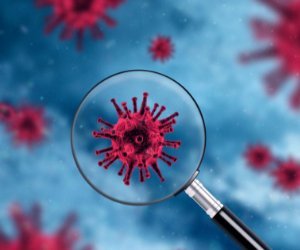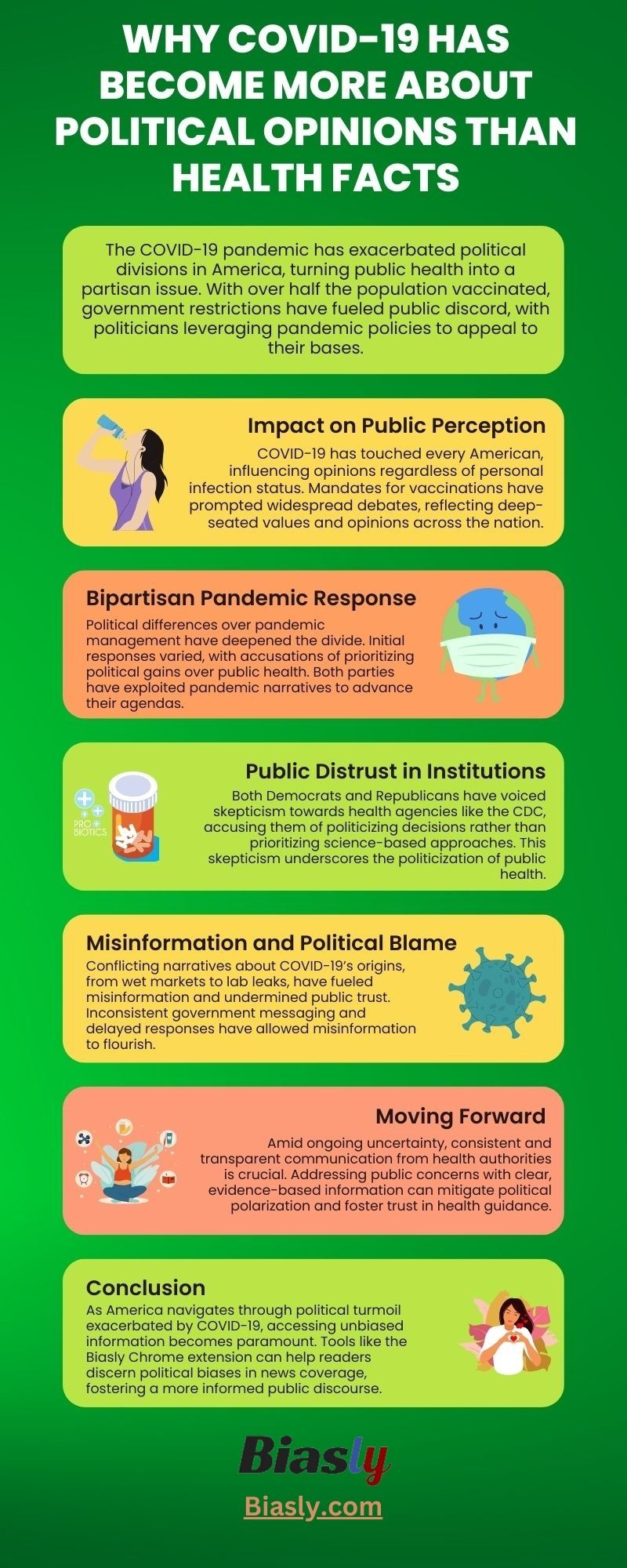
Have you noticed that Covid-related health decisions are made for the best interests of politics rather than safety? It appears as if the COVID-19 pandemic is more about politics than science, and both sides are playing their part. We are going to explore how the pandemic created the biggest political divide in recent memory. Furthermore, what you can do to weave through the hundreds of biased COVID-19 news articles published every day so that you can get the most impartial stance on today’s news.
The Effect of COVID-19 on Democratic and Republican Biases
COVID-19 has given Americans yet another reason to deepen their political divisions. With over half of the public vaccinated, many citizens are at odds with government restrictions and mandates. Politicians are now using the pandemic as a tool to appeal to their voters, which has furthered public division.
To fully understand how COVID-19 has polarized the public, the large number of Americans impacted must be addressed. The pandemic has affected every American, regardless of race, gender, and occupation. Whether you have COVID-19, know someone who has, or have never even had an experience with the virus, you are now impacted.
From office workers to professional athletes, the government’s request for every able-aged citizen to get vaccinated puts every American’s values and opinions to the test. The sheer number of people who are now having to create shifts in their lives has created the largest divide most young Americans have ever seen.
COVID-19 Biases: Party Division or Political Pandering?
The sheer number of people impacted by the pandemic is going to cause some division, but politicians are choosing to take part in the division. So why has COVID-19 become bipartisan?
Due to political differences in how to handle the pandemic, the public has been divided along political lines. In the early stages of the pandemic, the Trump administration wanted to show there was little worry about the virus. At the time, the stock market was experiencing its highest gains in a decade, and Democrats felt the president was more concerned with securing market gains and his other political goals, than preventing the spread of the virus.
However, leading up to the end of Trump’s term, Republicans accused Democratic leaders of delaying the distribution of the vaccine until after the election. Regardless of whom you blame, both Democrats and Republicans have shown the ability to use the pandemic as an opportunity to push their political agendas.
What Do Republican and Democratic Voters Agree On?
Regardless of this point and the blaming attitude from both sides toward government action concerning COVID-19, voters on both sides of the party line have shown distrust in government agencies involved in the pandemic. In 2020, a Harris Poll survey showed that 82% of Democrats and 72% of Republicans believe the CDC is making decisions based on politics, not science.
Shayna Gadarian, an associate professor of political science at Syracuse University, discovered that the biggest divider in people’s responses to COVID-19 had little to do with age, gender, or race but with political affiliation. These numbers show that this health issue has become political, according to most of the public. While voters are aware of the biases on both sides regarding the virus, they often play into those biases themselves.
While Republicans have been portrayed as opposing government decisions regarding the pandemic, voters on both sides have expressed dissatisfaction with the Center for Disease Control (CDC) in recent months. The Kaiser Family Foundation report showed that 42% of Americans believed that the CDC paid more attention to politics than healthcare. The belief had nothing to do with facts about the coronavirus, but with how politicians and agencies handled the crisis.
Why are Politicians Letting Political Opinions Dominate Health Facts?
Blaming partisanship for the sake of its existence solves nothing, and it’s vital to look at the aspects that helped create such partisanship. Consider the fact that other health emergencies like cancer do not attract such division amongst politicians, so why was COVID-19 specifically different? This division had to do with the lack of consistent messaging and actions from government officials, especially at the CDC, which fueled the ability of skeptics to create and spread misinformation.
The origins of COVID-19 were a hot topic from the moment it hit the American public’s attention, with officials stating it most likely originated from wet markets in China. It didn’t take long for U.S. diplomats to raise concerns that a facility in Wuhan, China, may have accidentally leaked the virus. Adding to the confusion, Chinese officials were quick to counter, suggesting that the leak may have originated with the U.S. Army. With the constant shift in blame, neither the Biden nor Trump administration would provide substantial information that would clear the confusion.
In the two-plus years since the pandemic, the government has failed to provide any definitive answers, only speculating on whether the virus may have leaked from a lab or originated from bats in China. Due to a lack of clarity in facts, politicians have been able to adopt different positions on COVID-19 health information. Even as the pandemic progressed, inconsistencies were evident in government messaging, including the slow distribution of test kits and back-and-forth advice on wearing masks.
Whether the virus came from live animals in Chinese wet markets or accidentally leaked from a lab in China, everyone should take this pandemic seriously. In the absence of concise and clear messaging from the government, those with no expertise could create their own narrative. Most importantly, it fueled discourse and division amongst political opinions. There is a real pandemic, and getting people to act to save lives depends on a coherent message that clears up the confusion. Moving forward, the government should avoid claiming certainty about the virus and instead focus on safe health practices while we wait for a vaccine.
Where Do We Go From Here?
Almost two years after the first vaccines, Americans are even more divided than ever with inconsistent messaging from the CDC about the vaccine and its ability to create immunity. Regardless of whether the virus makes you immune or provides a layer of protection, governments should understand that consistent messaging and branding are crucial in getting someone to take action. In order to calm and reassure the public, information was released as it became available. While this type of approach can be successful in the short term, it eventually hurts your message. As “facts” change, government agencies must tell a different story. Agencies involved in disseminating information to the public should take a traditional crisis management approach to COVID-19 health information, rather than release it as soon as it becomes available.
With government officials still claiming the pandemic is far from over and new political threats like the war in Ukraine rising, the political division in America is likely far from over. With experts agreeing that biased and fake news is on the rise, it is essential to ensure the COVID-19 information you are reading comes from an impartial source. Unfortunately, there are few to no unbiased political sources. Fortunately, there is a platform designed to inform readers of the biases in the articles they read every day. Download the free Biasly Chrome extension to receive bias ratings and counter-opinion articles while you browse and ensure you’re getting every side of the story.























